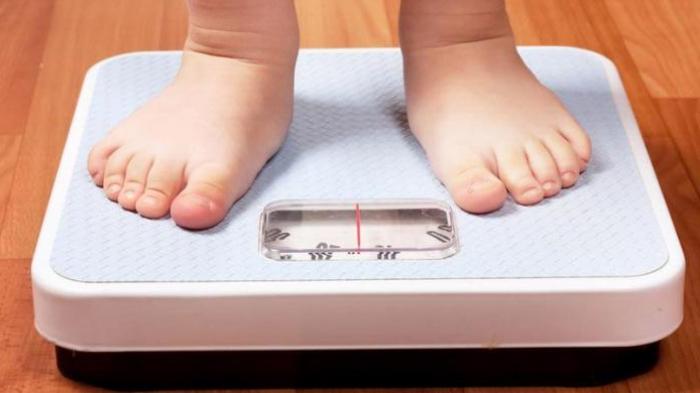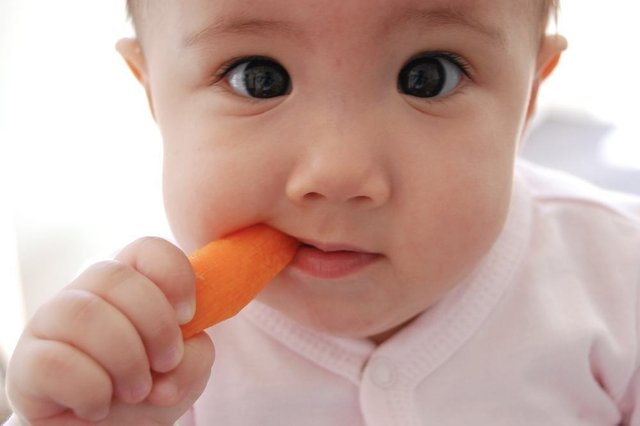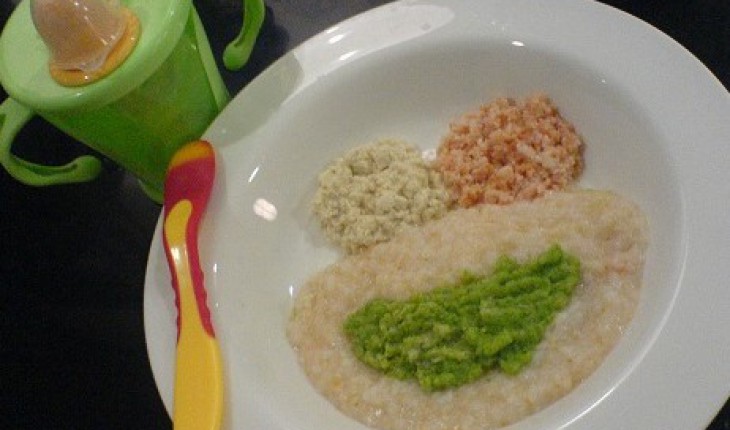How to Take Care of the Baby Age 1 Year
Age 1 year is a phase where the baby can consume food consumed by family members. Consumption is certainly accompanied by texture and taste adjustments that are adapted to the baby's digestive ability. Here's what you need to pay attention to caring for a 1-year-old baby.
Baby's Weight Development
At the age of 1 year, the baby's weight has grown to 3 times her weight at birth. Weight gain from age 1 year upwards is 2 kg per year. To achieve optimal growth, the baby needs to get enough nutritional intake every day. Do not forget to continue breastfeeding until the baby is 2 years old or older.
Baby food menu at the moment is food consumed by a family member. If necessary, the food is still chopped or filtered roughly adjusted to the baby's digestive conditions. Food material for adults can also be used to make the baby's diet.

Start Organize the Baby's Diet
At this age, the menu for the baby can be likened to food for adults, but with a customized flavor. The frequency of feeding on the baby ranges from 3 to 4 times a day. Breast milk is still given and may be given as a distraction 1-2 times a day depending on your appetite. Meal portions can be given from ¾ to 1 cup (175ml-250ml) at each meal.
The mother may begin to realize that after the baby has passed the age of 1, her appetite has decreased and tends to pick food. Mother need not worry too much, because when she reaches the age of 1 year, growth rate also slowed down and her need to eat become less.

Healthy Food Menu for 1 Year-Old
The consumption needs of children 1 year depend on the weight and level of daily activities. Mostly, a 1 year old child needs about 1000 calories per day. 1000 calories can include 2 glasses of milk, 2 glasses of fresh fruit and vegetables, 2 ounces of grain equivalent to one slice of bread or 1 cup of cereal and 2 ounces of meat. Type of food should be divided between three large meals and two snacks.
If you want to give honey to your baby, then at the age of 1 year, you can give it. Why is honey not recommended for infants under 1 year? Because honey can cause food poisoning in infants; called botulism caused by Clostridium botulinum bacteria. Symptoms are constipation, lethargy, and no appetite. These symptoms can occur 8-36 hours after consuming honey.

Needs Sleep The baby
Sleep is one of the important things needed by the baby's body. Because when he sleeps, the baby's body and brain will rest. Quality sleep can support optimal growth because 75% growth hormone is released when the baby is asleep. This hormone is responsible for stimulating bone and tissue growth, and regulates the body's metabolism. In addition, growth hormone also allows the baby's body to repair and renew damaged cells. This renewal process takes place more quickly when the baby is asleep.
Needs the baby's sleeping hours at this time is 13 hours 45 minutes per day, divided by two hours of sleep ie night sleep and nap. Sleepless nights for 11 hours 30 minutes. While nap 2 hours 15 minutes divided by 2 times a nap. Reduced sleep time in toddler age because the baby a lot of activity. This is influenced by the development of rough motor, the legs that begin to learn to walk. In addition, he was a lot of exploring.
In order not difficult to sleep at night, make sure the baby is not too tired and nap enough. Preferably the baby does not actively active activity above 16:00 hours, because it can affect the quality of sleep. The baby can be delirious to cry. During the night's sleep, sometimes the baby awakens every 2-3 hours, perhaps because of thirst, hunger, or just satisfy his oral needs. Once fulfilled, the baby will usually fall asleep again.

Games For the baby
To stimulate optimal growth, apart from nutritional factors, the baby also needs to be given a game that stimulates his creativity. The stimulated baby will develop faster than his or her age who is lacking or even not getting stimulation.
Here is a good game for the baby ages 12-24 months:
- Search for sound source / follow sound source
- Introducing the sound source
- Train your little one to make a push and pull movement
- Train his imagination
- Training the Little to do everyday activities all in the form of interesting activities
Recommended game tools:
- Drum, balls with bells in it
- Game tools that can be pushed and pulled
- Game equipment consisting of household appliances (eg non-breakable cups, spoons, plastic bottles, buckets, wasps, water), large blocks, large cardboard, picture books, scribbled papers, crayons / pencils colored